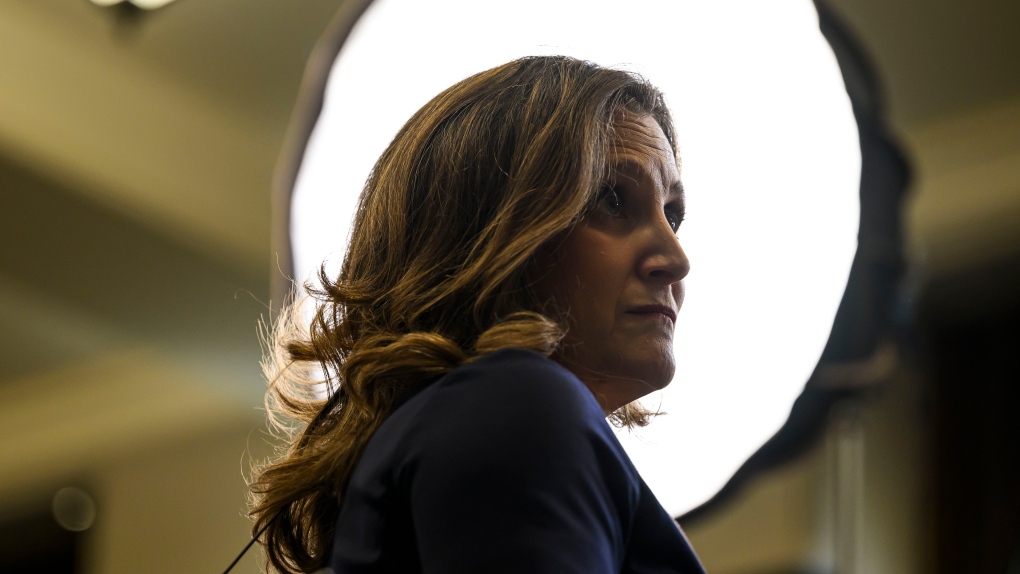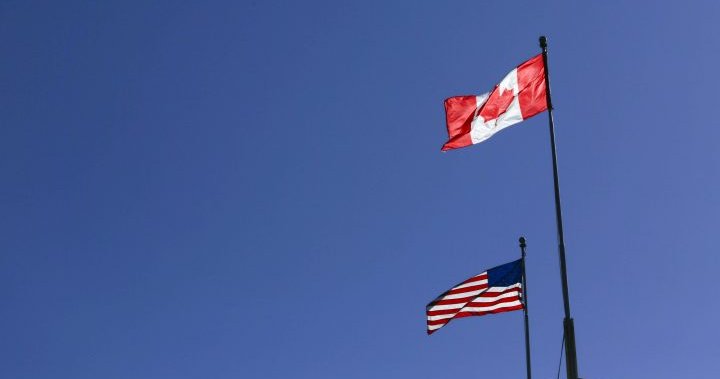Canadian government officials aren’t offering any hints on whether changes — if any — will be announced regarding the Canada-U.S. border next week.
Officials were asked about the issue at a news conference on Thursday, as the July 21 expiry date on travel restrictions between the two countries draws closer.
Dominic LeBlanc, minister of intergovernmental affairs, told reporters that Prime Minister Justin Trudeau will meet with first ministers and the country’s premiers later Thursday to talk about the border.
“We have said we’re prepared to take additional progressive steps over the coming weeks and months as it’s safe to do so … We’ll have more to say about specific measures over the coming days and weeks,” he said.
“We also said we understand very much Canadian’s desire to be able to travel again, to see family members, to resume some of the activities that were so important before COVID-19, that’s why we eased some measures in a balanced, thoughtful way on July 5.”

On Wednesday, lawmakers in the U.S. Midwest formally requested that Washington and Ottawa take immediate action to reopen the border to fully vaccinated travellers.
That day, Marc Garneau, minister of foreign affairs, spoke with Antony Blinken, the U.S. secretary of state, and “agreed to continue working closely together and coordinate efforts on a safe and sustainable re-opening of the Canada–United States border,” a summary of the call said.
The border has been closed to all but essential travel and trade since March of last year to stop the spread of COVID-19.
The travel restrictions have been extended on a monthly basis for more than a year. Canada gradually began easing quarantine requirements July 5, but only for fully vaccinated citizens, permanent residents and other eligible travellers — though it does not apply to recreational travellers.
But now COVID-19 cases are rising in the United States due to the Delta variant. The U.S. saw 31,845 new cases and 331 new deaths on Wednesday, according to a tally by Johns Hopkins University.
Dr. Howard Njoo, deputy chief public health officer of Canada, said officials are weighing several factors when considering how to safely reopen the border, including vaccination rates, disease spread, hospitalizations and deaths.
“The wild card … is the variants,” Njoo said.
“To date, many of them have shown to be more transmissible — but overall the evidence that we’ve seen to date show they haven’t really been more severe in terms of causing more severe outcomes overall compared to the original strain of COVID-19.”
Njoo added officials are monitoring vaccine effectiveness, and are keeping an eye on COVID-19 resurgence in other countries that are easing restrictions, like England.
Trudeau echoed some of Njoo’s sentiments in an unrelated press conference Thursday.
He said Canada will need to reach a certain standard of domestic vaccination before borders with the U.S. can reopen safely. In French, Trudeau acknowledged the meeting with premiers, where he said he intends to discuss this topic.
“People understand we’re still in a pandemic,” he said in French. “We have to continue with a gradual approach.”
Raywat Deonandan, an epidemiologist at the University of Ottawa, previously told Global the uptick in cases down south could have an impact on border restrictions.
The problem with the U.S., he said, is that every state is different when it comes to fighting COVID-19. For example, Mississippi has the lowest vaccination rate with 33.6 per cent of eligible people fully vaccinated, while Vermont has the highest inoculation rate with 67.4 per cent of eligible people are fully vaccinated.
“It makes Canadian travel difficult with some states,” Deonandan said. “It is advisable for Canadians going to American states that have grown in the Delta variant in particular, to self-quarantine when they come back, seek out a negative test or to not go in the first place.”

In the meantime, Njoo said Canadians must continue to get vaccinated in order to put COVID-19 behind us.
“The vaccination rate among the Canadian population is a very important metric to follow because the more protected we are as an entire population, the more resilient we would be in terms of any potential importation of cases,” he said.
–With files from Katie Dangerfield and Saba Aziz.
© 2021 Global News, a division of Corus Entertainment Inc.







More Stories
Trump allies Meadows, Giuliani among 18 indicted in Arizona election interference case | CBC News
RCMP confirm 2 kayakers missing from Sidney, B.C., found dead in Washington state | CBC News
Why did the U.S. TikTok ban bill get packaged with foreign aid?